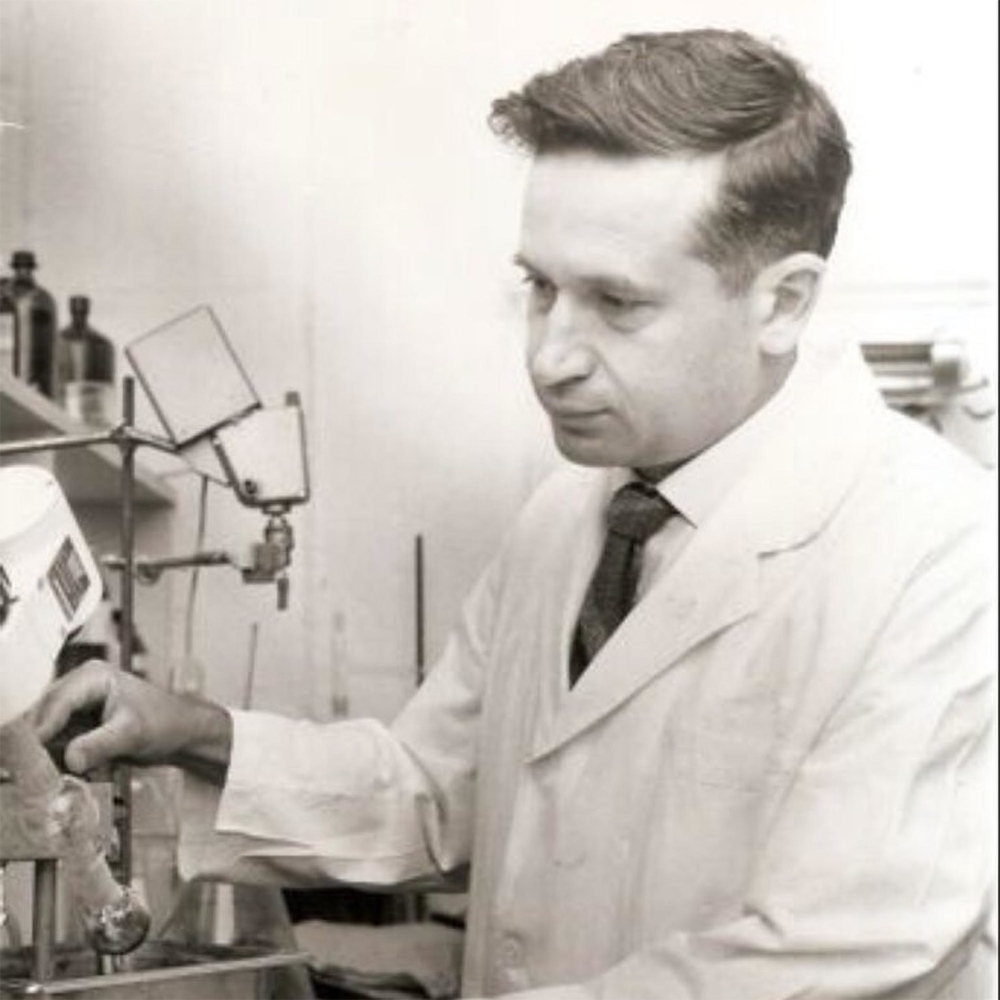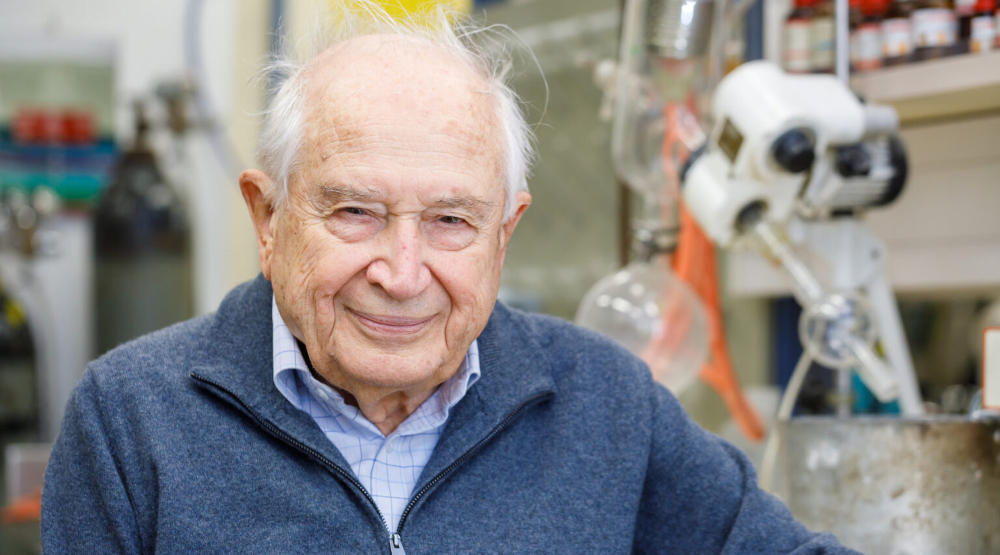It started with a meeting at the police station followed by a smelly bus trip, as the late Dr. Raphael Mechoulam recalled years later.
The future “father of cannabis research” had just scored some hashish – from Tel Aviv police, of all sources – when he boarded a bus to return to the Weizmann Institute of Science in Rehovot, where he’d been researching steroids.
With the recommendation of his Institute overseer, Mechoulam had turned to the police for a supply of hash from cannabis seized in drug busts to use in his initial 1960s research.
What’s that smell?
“After 15 or 20 minutes, people started asking what the hell is that smell, that very unusual smell?” Mechoulam recalled of the trip in a later documentary about his life and work by Barcelona-based Fundacion CANNA. “I mean, I had five kilos of hash in my bag!”
Mechoulam’s death last week, at age 92, was announced Friday by American Friends of the Hebrew University, where the scientist helped establish the Multidisciplinary Center for Cannabinoid Research in 2017.
That first score eventually led to Mechoulam being accused of breaking the law because he’d failed to get a permit from the Israeli Ministry of Health, he said. After that, “I always went to the Ministry of Health, they gave me a letter to the police, went to the police and drank some coffee with them, took the hashish I needed and that was it,” Mechoulam recalled.

The scientist’s studies eventually formed the basis for all research into endocannabinoids, and represent a staggering body of work by Mechoulam and teams of researchers he assembled beginning in the 1960s, when one team first identified and isolated THC. Successive studies carried out into the 1990s eventually led to the discovery of cannabinoid receptors and the study of the endocannabinoid system in humans.
‘Charismatic pioneer’
“Most of the human and scientific knowledge about cannabis was accumulated thanks to Prof. Mechoulam,” Hebrew University President Asher Cohen said in a statement last week. “He paved the way for groundbreaking studies and initiated scientific cooperation between researchers around the world. Mechoulam was a sharp-minded and charismatic pioneer.”
While THC and CBD (cannabidiol) were first extracted from cannabis in the 1940s, their structures and chemistry weren’t uncovered until Mechoulam’s laboratory did so decades later. That’s when his research set out to determine how THC produces a high. The psychoactive interactions of other drugs used recreationally, such as cocaine and opium, were already understood. But scientists still didn’t know how marijuana worked. Mechoulam was the first scientist to map the chemical structure of delta-9 THC to answer that question.
Importance of CBD research
Mechoulam’s findings about THC helped push that compound more into the mainstream consciousness, especially among serious researchers dedicated to cannabis as a healing plant instead of a recreational drug. While hailed as an icon by scientifically-minded pot smokers, Mechoulam himself considered his later work in CBD to be more important than his earlier findings about THC.
That conviction came after a Mechoulam-led 1990s team of researchers found that the human body produces its own cannabinoids – much as it produces native opioids and nicotine-like molecules – which engage cannabinoid receptors present throughout the human body. Those receptors help regulate appetite, manage pain, and operate the immune system, the science eventually showed.
“Receptors don’t exist because there’s a plant out there,” Mechoulam told the European Congress on Epileptology in 2018. “Receptors exist because we, through compounds made in our body, activate them. So we went looking for the endogenous compounds that activate the cannabinoid receptors.”
In 1992, his team identified the first one. More than one hundred followed.
Bulgaria to Israel
Born in Bulgaria in 1930, Mechoulam immigrated with his family to Israel in 1949. He received his Ph.D. at the Weizmann Institute, writing a thesis on the chemistry of steroids. After postdoctoral studies at the Rockefeller Institute in New York, he joined Weizmann’s scientific staff.
Mechoulam became a full professor at Hebrew University in 1972 and was named the Lionel Jacobson Professor of Medicinal Chemistry in 1975, serving as the university’s rector from 1979-1982. He was a founding member of the International Association for Cannabinoid Medicines and the International Cannabinoid Research Society. In 1994, he was elected to be a member of the Israel Academy of Sciences and Humanities, and in 2014 was named one of the “World’s 50 Most Influential Jews” by the Jerusalem Post.
He was a recipient of the Israel Prize in Exact Sciences for Chemistry in 2000, and the Israel Institute of Technology’s prestigious Harvey prize in Chemical Engineering and Medical Sciences in 2020, a year in which he was also nominated for a Nobel Prize in chemistry.
A scientist’s wish: Push ahead
Asked by the Fundacion CANNA filmmakers why he agreed to make the 2015 documentary, Mechoulam said “Well, unfortunately, I don’t know how to say ‘no.’ And when a friend asks me, I normally will say yes.
“But in this case, I would also probably like to push ahead and tell people here we have a group of compounds and an endogenous system of major importance. . . . It is of great promise in the clinic. Let’s try to push it forward.”
Addressing future researchers, Mechoulam expanded on that theme in a later interview: “I would like to see my colleagues forge ahead with their investigations, advancing even further the acceptance and integration of cannabinoids, in particular cannabidiol, its derivatives and the specific CB2 agonists, in traditional medicine.”

